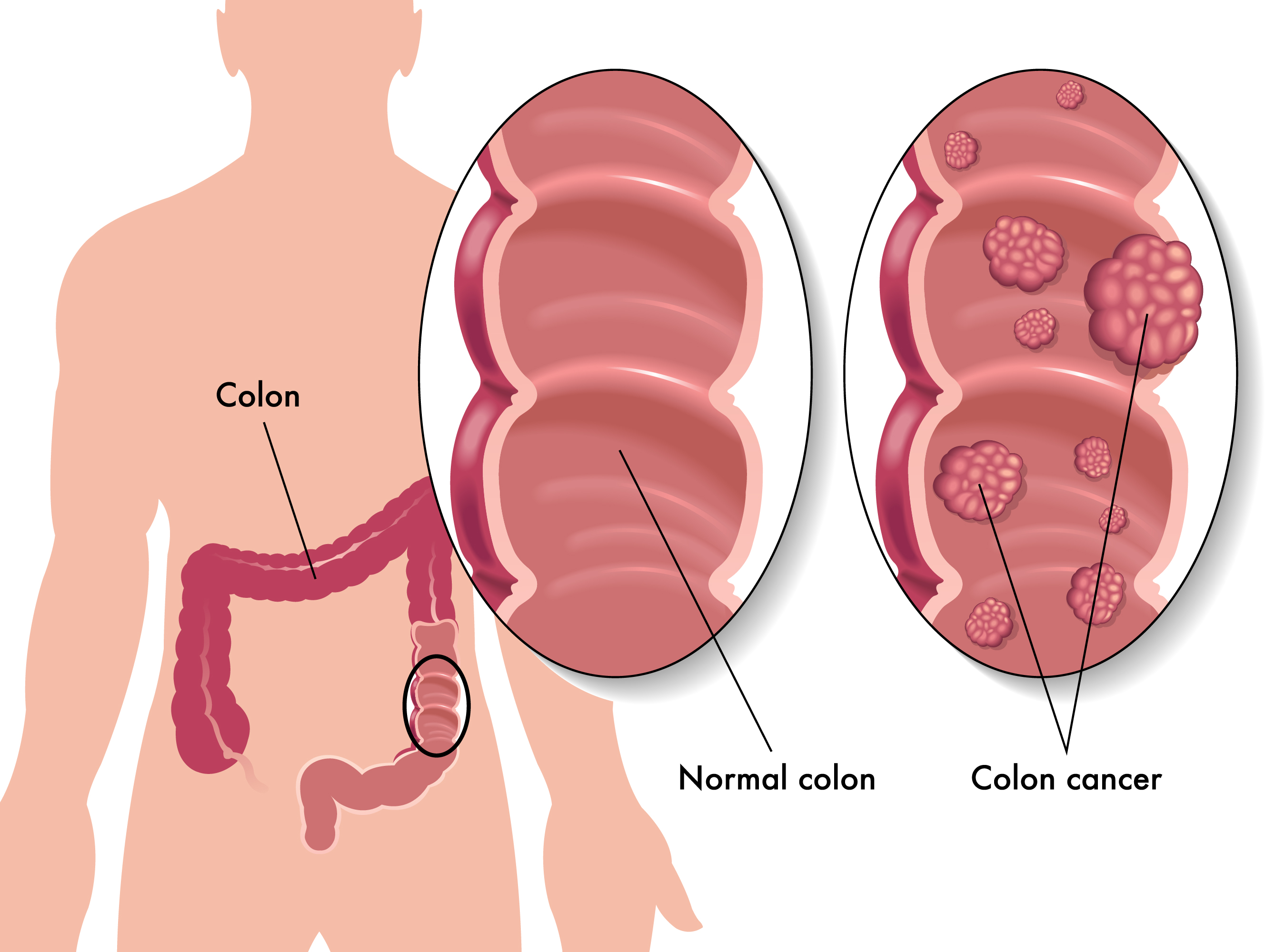Advance Treatment of All Types of Simple & Complex Hernia
Diagnosis of colorectal cancer (Warning symptoms)

Cancer of the colon or rectum is more common after the age of 50 years.
Colorectal Cancer is one of the cancers which can be prevented easily because it usually develops from polyps and POLYPS can be diagnosed early and can be removed before it changes to cancer.
Warning symptom of colorectal cancer–
- Blood in the stools
- Change in bowel habits
- Unexplained Anemia
- Unexplained abdominal pain
- Abdominal/rectal masses
BUT Colorectal cancer can be a silent disease and not have any symptoms at all.
Barium enema, CT colonography or CT scan May give the clue.
Diagnosis of colorectal cancer is confirmed by colonoscopy (endoscopic examination of large bowel) and biopsy.
Causes of Colorectal Cancer
Exact reason of colorectal cancer is not known, it is usually combination of genetic and environmental causes.
Approx 90% of environmental reasons are due to diet such as high calorie intake, red meat consumption, longer cooking times producing a higher concentration of carcinogens.
Other factors are obesity (though reason of why obese has more risk of colorectal cancer is not clear) alcohol and tobacco.
Prevention of risk of colorectal cancer
- The best way to reduce the risk is regular colorectal cancer screening
- Regular Exercise
- Diet rich in vegetables, fruits and high-fiber
- Avoid high fat foods.
- Moderate carbohydrate intake and reduce refined sugar intake
- Avoid smoking and moderate alcohol intake
- There is no clear evidence to support ‘antioxidants’, colonic irrigation or herbal remedies in prevention of colorectal cancer.
Screening for colorectal cancer
If you answer “yes” to any of the following questions, visit your colorectal or general surgeon about colorectal cancer screening-
- Are you aged 50 or older?
- Are you having blood in stool?
- Is there any recent change in your bowel habit?
- Has your first degree relative had colorectal cancer?
- Has your first degree relative had colon polyps?
- Do you have a chronic inflammatory bowel disease such as ulcerative colitis or Crohn’s disease?
colorectal cancer Screening schedule as per risk
Average Risk Group – Asymptomatic and no family history
- Screening starts at 50 years of age
- Digital rectal examination, and Stool occult blood testing – Every year
- Flexible sigmoidoscopy- every 5 years
- Colonoscopy – every 10 years
- Barium enema – every 5-10 years
High Risk Group
Family history of colorectal cancer- colonoscopy 10 years prior to youngest case in family
Personal history of colorectal polyp- Colonoscopy one year after polypectomy if polyp was more than 1 cm, multiple and villous or three years after polypectomy for solitary tubular polyp.
Personal history of colorectal cancer or endometrial cancer or ovarian cancer – Colonoscopy one year after resection
Very High Risk Group
Family history of familial adenomatous polyposis- Flexible sigmoidoscopy from puberty
Family history of non polyposis colorectal cancer- Colonoscopy 10 years prior to youngest family member
People with inflammatory bowel disease- after15th year of diagnosis
colorectal cancer Screening methods
Fecal occult blood testing (FOBT)
Flexible sigmoidoscopy:
Colonoscopy
Other screening tests i.e. barium enema, and CT colography (virtual colonoscopy) may not be as effective and reliable as FOBT or colonoscopy







